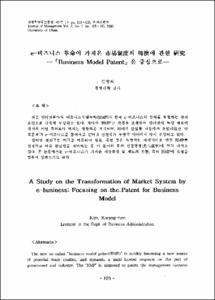"의미"(meaning)의 화용논적 해석 시도
- Alternative Title
- An Attempt to Account for "meaning" from Pragmatic View Point
- Abstract
- 언어의 연구목적이 '의미'를 연구하는 것이라는 정의에는 아무런 이의가 없어 보인다. 그러나 '의미' 자체의 정의는 아직도 합의된 것이 없는 실정이다. 언어학에 많은 유파가 파생하게 되는 이유중의 한 가지는 '의미 개념 정의'가 없기 때문일 것이다.
언어 철학이나 언어학에서 일찍(Greek)부터 '의미논쟁'이 계속되어 왔으나 아직도 미해결의 장으로 남아 있는 것이 사실이다. 이 같은 현상은 언어가 갖는 어쩔수 없는 표현상의 제약성 때문에 빚어지는 것이라고 본다. 즉 우리는 한가지 언어 기호로서 몇 가지 서로다른 외부현상(the events of the external world)을 인식표상(mental representation)화 하지 않으면 안된다. 이러한 엄연한 현상을 무시하고 언어기호와 인식표상 간의 관계를 일 대 일의 대응관계로서만 해석하려는 종래의 연구방법론 때문에 '의미'해석 자체에 많은 혼란이 있었고, 또 지금도 있는 것으로 안다. 이를 해결하기 위하여, 먼저 언어기호가 ??상하려는 외계현상자체에 어떤 유형이 있는 가를 규명하는 것이 급선무다.
본 논문에서는 먼저 이들 외계현상 유형 분류를 시도한 다음 이를 토대로, 이들이 존재 가능한 세계(the possible worlds) 이론을 원용하여 '의미'의 다원적 해석을 시도해 보고자 한다.
"Linguists study meaning, and also use meaning as a criterion for studying other aspects of language"(David Crystal 1980,222).
As suggested by the above cited, it is in general agreed that the purpose of linguistic studying is to study "meaning". Ironically, however, there has never been defined "meaning" itself, in spite of continious desperate research for "meaning definition" by many from ancient Greek philosophers to today's linguists.
Greimas/Courtes say, "the concept of meaning is undefinable".
Linguistic expression/sing can have several aspects of meaning the sign refers to.
It would be a great mistake to try to interpret a linguistic sign in one-to-one corelation to its mental repressentation of the external world event. to solve this problem, first of a there ought to be designated the categories of the external world event expressed into mentarepressntation: that is, there can be as many kinds of meaning as the number of the categories which are controlled only under quite differdnt constraints independent of each other.
Second, it should also be defined how many and what kinds of possible world are there in the discourse/speech context. They are probably Linguistc, Real, and Cognitive-world. The combined idea of meaning categories and possible worlds would enable me to account for the problematic expressions reised by some linguists and philosophers.
"Linguists study meaning, and also use meaning as a criterion for studying other aspects of language"(David Crystal 1980,222).
As suggested by the above cited, it is in general agreed that the purpose of linguistic studying is to study "meaning". Ironically, however, there has never been defined "meaning" itself, in spite of continious desperate research for "meaning definition" by many from ancient Greek philosophers to today's linguists.
Greimas/Courtes say, "the concept of meaning is undefinable".
Linguistic expression/sing can have several aspects of meaning the sign refers to.
It would be a great mistake to try to interpret a linguistic sign in one-to-one corelation to its mental repressentation of the external world event. to solve this problem, first of a there ought to be designated the categories of the external world event expressed into mentarepressntation: that is, there can be as many kinds of meaning as the number of the categories which are controlled only under quite differdnt constraints independent of each other.
Second, it should also be defined how many and what kinds of possible world are there in the discourse/speech context. They are probably Linguistc, Real, and Cognitive-world. The combined idea of meaning categories and possible worlds would enable me to account for the problematic expressions reised by some linguists and philosophers.
- Issued Date
- 1989
- Type
- Research Laboratory
- Alternative Author(s)
- Joo,Hark-Neung
- Publisher
- 연구논문집
- Language
- kor
- Rights
- 울산대학교 저작물은 저작권에 의해 보호받습니다.
- Citation Volume
- 20
- Citation Number
- 1
- Citation Start Page
- 65
- Citation End Page
- 86
- Appears in Collections:
- Research Laboratory > University of Ulsan Report
- 파일 목록
-
-
Download
 000002025308.pdf
기타 데이터 / 2.64 MB / Adobe PDF
000002025308.pdf
기타 데이터 / 2.64 MB / Adobe PDF
-
Items in Repository are protected by copyright, with all rights reserved, unless otherwise indicated.